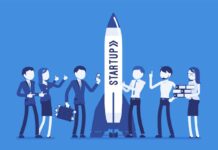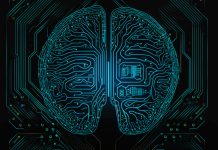 Alex Goryachev has spent his career helping businesses turn good ideas into lasting impact. A recognised Start-ups & Innovation Speaker, he’s worked with major global brands and ambitious new ventures alike, guiding them through change and showing how innovation can drive real growth.
Alex Goryachev has spent his career helping businesses turn good ideas into lasting impact. A recognised Start-ups & Innovation Speaker, he’s worked with major global brands and ambitious new ventures alike, guiding them through change and showing how innovation can drive real growth.
From leading innovation programmes at Cisco Systems to mentoring more than 80 start-ups worldwide, Alex combines boardroom experience with an entrepreneur’s instinct. His work has helped organisations build stronger teams, sharpen strategy, and bring creativity into everyday business.
In this exclusive interview with The SpeakOut Speakers Agency, Alex discusses the future of innovation, what start-ups can teach established companies, and how forward-thinking leaders can prepare for what comes next.
Q: As artificial intelligence continues to evolve, which areas of business do you believe will experience the most profound transformation?
Alex Goryachev: “That’s a great question. You know, it comes to mind, and it’s really Human Resources. When we think about AI, AI is a technology; however, everything about AI is about transforming businesses. So, it’s something that spans every single organisation, and I believe in the next three to five years — actually starting tomorrow, over the next several years — it will touch HR the most.
“From recruiting to learning and development, and training people with the right skills and, or actually retraining that workforce — 40% of the workforce needs to be retrained. Attracting the right people to the workforce, planning and strategy — when I think about AI, our organisations are going to change dramatically, and there will be a significant restructure, there will be a significant attrition. So, we would have to replan the way we look at our organisations very quickly.
“So, learning and development, training, onboarding, policy, compliance — and then we talk about those digital humans that are going to be entering our workforce. I’m kind of sceptical about the term, I think it’s a bit of an oxymoron. Having said that, we will be augmented, or we will be augmenting — hopefully not being replaced by — our digital co-workers. It’s a fact, and it’s already happening, and that will end up in HR organisations as well.
“So, from policy to compliance to training, to setting up this brave new world of AI-enabled businesses — that is forefront to the strategy, planning and HR operations. And I love to get HR people excited about AI. I think they’re the ones that unlock the innovation in the enterprise. It’s about talent, and AI is about unlocking that talent and unlocking the institutional knowledge and capabilities.”
Q: From your perspective, what tangible business benefits does AI offer — and why is adoption now a matter of survival rather than choice?
Alex Goryachev: “Thank you for asking. You know, I look at this and — where do I begin? Really, the benefits are limitless, and so are the opportunities and risks. However, you’ve asked about the benefits, and benefits are really about — let’s talk about the bottom line.
“It’s really getting things done faster, cheaper, with more efficiency. And I’m not talking about laying people off and replacing them with machines; I’m talking about the ability to actually scale the operations and do more with less. That “less” is time. So, when we have people working in our organisations, we’re able to deliver more things easier. That’s really about the bottom line.
“And then the top line is — because we’re able to deliver things faster and better, we can get stuff to market faster, we can interact with our customers faster, we can bring the products to market faster. There are definitely benefits — whether that’s cost avoidance, growth, or efficiency.
“I think the biggest benefit of AI is staying in business, right? It’s like, what’s the benefit of electricity? There are so many benefits to electricity — from heating to cooling to just making the world run — and I feel AI is kind of the same thing. It’s really coming to this position, in this particular time in history, where it’s becoming the central thing that runs our organisations and that’s deeply embedded in our life.
“So, it will power everything, and not doing it — not tapping into this benefit — will ultimately put us out of business. That’s what I really want to talk about. I really want to prepare organisations to understand what are the benefits of doing AI and working with AI, and what are the risks of not doing it.”
Q: What practical steps can organisations take to successfully integrate AI and other emerging technologies into their operations?
Alex Goryachev: “I think the first thing is to begin with an understanding that AI is not about technology — it’s about people. It’s unlocking that value within the business operations, within their organisation and the workforce. And to do that, I feel they really need to begin with small, measurable milestones.
“What are the pragmatic things the organisations want to deliver, and how do they go about it? Again, I think the most important thing is really ensuring that the leadership and the workforce understand what AI is and isn’t, and we execute accordingly to our core business needs and capabilities.”
Q: When looking to the future of work, how do you see AI reshaping the global workforce and the way organisations operate?
Alex Goryachev: “Yeah, I think when we think about that transformation, it’s more of a revolution. I think AI will drastically reshape the workforce in the next year or two. Already, looking at the latest data, we’re seeing probably 20% of the workforce right now being at risk — primarily in the white-collar jobs.
“According to the recent IBM study, around 40% of the global workforce — 40% — needs to be retrained. So, when we think about the workforce, I think the biggest thing is really that our workforces will be augmented by digital humans. We will have our digital co-workers working alongside us, doing some of our tasks, interacting with us and customers.
“And when I think about that workforce planning — getting those skills, understanding the new organisational structure, and preparing for that transition — I feel that’s the most critical and important thing. Again, I can’t underestimate how critical it is to understand the AI transformation that’s coming, and it will change the workforce.
“It will change the organisational structure in an immense way. There will be an emergence of organisations that are AI natives, where AI is at the centre of their company or business or enterprise. And it’s essential for us to go and understand the environment, understand the opportunity, understand the challenges — so that we can not only thrive but actually survive in this transformation.”
Q: Many misconceptions still surround artificial intelligence. What are the most common myths you aim to challenge through your public speaking?
Alex Goryachev: “Well, I think usually when we talk about AI, the pendulum swings from one extreme to another. One extreme is “AI could solve everything” — that’s far from the truth. And then the other one is “AI is an overhyped thing” — I think that’s far from reality as well.
“My goal is really to make sure that audiences understand what AI is and isn’t, and they understand how to pragmatically use AI to enhance their personal careers and enhance their organisational capabilities. The truth is somewhere in the middle.
“It’s definitely, in my opinion, not an answer to everything, and at the same time, I believe that this is — if I look at the printing press and electricity and the internet combined — AI is way bigger than that. And that’s not a myth.
“I think we will continue to see that as an emerging reality, and my goal is to ensure that audiences take advantage of that, that they’re not on the sidelines, they’re not replaced by AI, but rather they’re the ones that are shaping the AI revolution. They’re the ones that are really bringing value to themselves, their families, their organisations, our communities, and stakeholders.”
This exclusive interview with Alex Goryachev was conducted by Tabish Ali of The Motivational Speakers Agency.









































